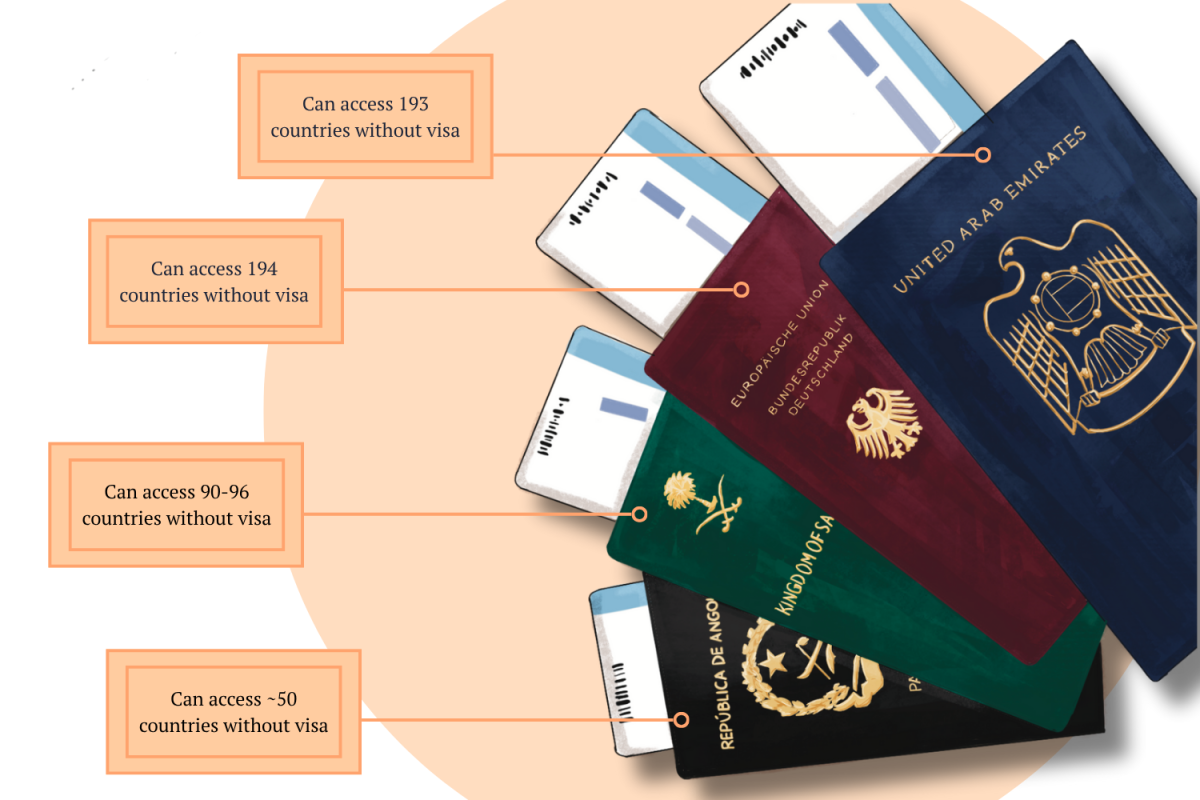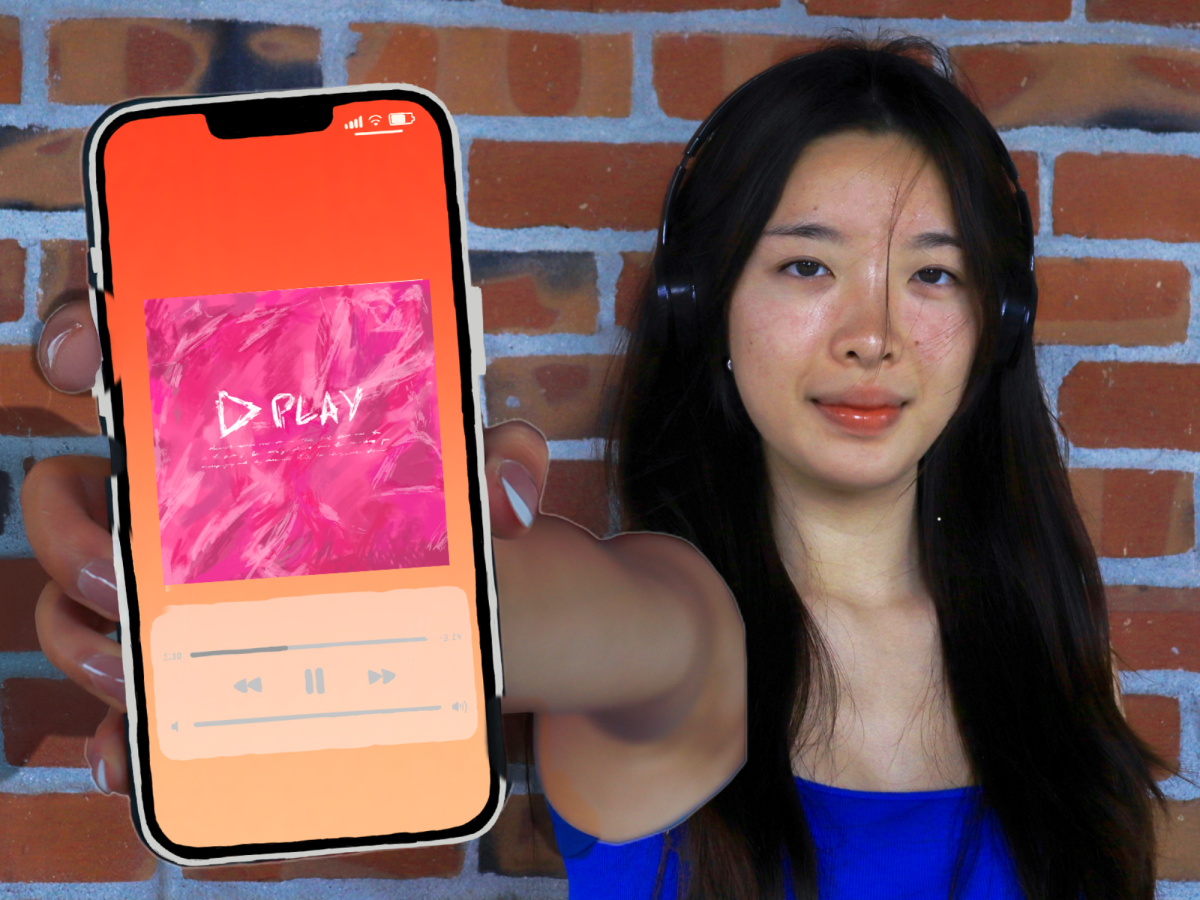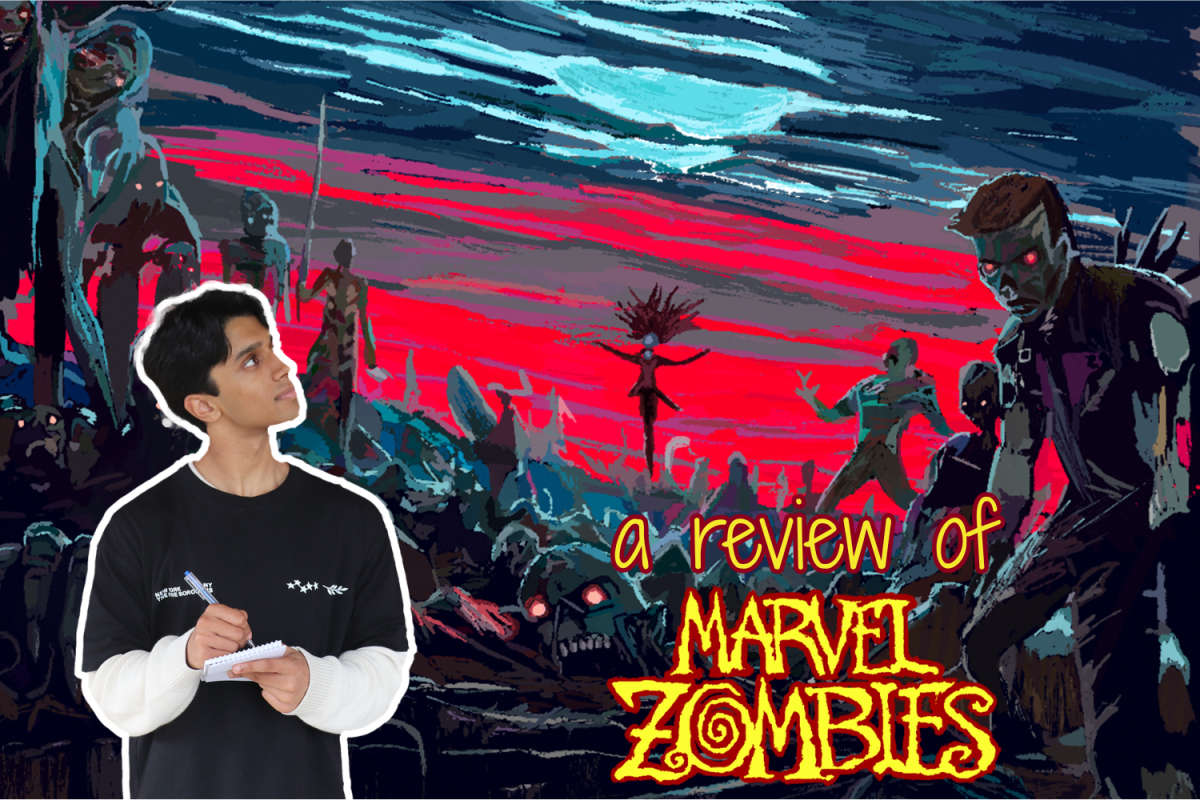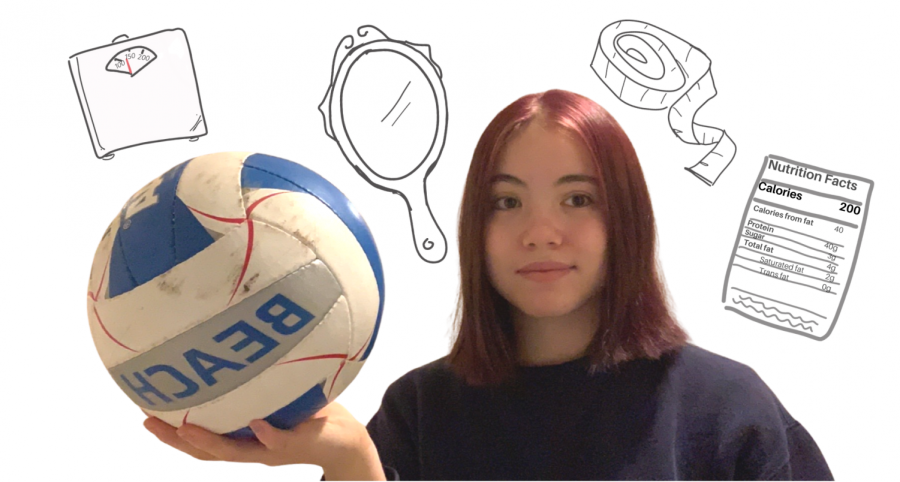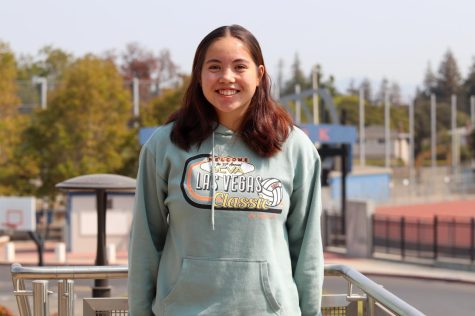From an athlete: Smaller isn’t better
Graphic illustration by Mei Corricello
My love for volleyball helped me look past the numbers and the scale, so I could focus on what matters: my performance.
January 25, 2021
Trigger warning: eating disorder thoughts and behaviors
“Tone up!”
“Caloric deficit…”
“Try apple cider vinegar, it works like magic.”
Each video on my Tiktok feed showed a different method for the same goal; all I wanted was to be smaller. Every week I started again, told myself to eat clean and do my cardio. It worked, but it also created a never ending cycle of self-hatred and an unhealthy relationship with food and exercise for me, especially during the pandemic. However, in a world of diet culture and unattainable beauty standards, being an athlete has guided me away from toxicity and toward health.
I grew up in gyms, from the old Crossfit where my parents were members to our own garage, complete with a pull-up bar, squat rack and benches. I’ve played competitive volleyball since fourth grade, for which I’ve trained 10 hours a week seven years straight. When I lose myself, I can always turn to the fundamental routine of setting physical goals and reaching them.
I remember doing my first pull-up when I was 11 years old as the sun set outside our open garage door and my dad cheered me on. I felt invincible. As a kid, I did what I wanted to and what felt good. I ate what I liked, just until I was full. I did workouts that were fun, out of pure joy, and chased the unrivaled feeling of pushing my limits.
As I grew up, however, I began to feel society’s eyes on me as a teenage girl. Our culture pushes young women to aspire to meet impossible beauty standards, and it often leads to negative body image issues and disordered eating. I am not immune to these pressures, and when COVID-19 shut down sports and forced everyone to stay home for months, I spent more time than ever on the internet seeing bodies I thought were perfect. It was all I thought about from May through September.
I started running more, hiking and lifting weights. I became obsessed with my diet and counted calories religiously. I could see my body was changing, but I wasn’t treating it well. I started feeling fatigued and lightheaded. I plateaued in the gym and lost my usual stamina.
Every week, I ran hill sprints up our street. On one Friday in August, I remember barely finishing my last one, feeling exhausted and weak. Because of my efforts to cut calories, my body had nothing to run on. It forced me to finally admit to myself that what I was doing wasn’t healthy, and continuing would be at the cost of my athletic performance.
When fall came around, COVID-19 restrictions eased, and we were allowed back indoors to play volleyball. I fell in love with the sport again, and I was reminded of my goals to get quicker, serve harder and ultimately be recruited to play at a higher level. But despite training daily, I wasn’t seeing progress. Constantly trying to shrink my body made it impossible to gain strength. It wasn’t hard to find the root of my problem: I was overtraining and undereating.
I developed better habits and ate more, and it paid off. I fueled my body properly, and almost immediately, I could lift heavier and run faster. I had enough energy to get through practice, and I saw improvements in my game. More than that, I felt determined and capable again.
The changes didn’t happen overnight, though. I had to fix the way that I’d taught myself to think. Being the best that I could be at volleyball had always come before any desire for a different appearance. How could I now be willing to sacrifice my athletic ambitions just for an aesthetic?
I stopped fighting my body and started appreciating it, and my motivation for working out shifted. Instead of trying to lose weight, I focused on building the strength I needed to compete in the sport I love. Food is fuel, and I need it to perform well. Exercise should not be a punishment; it’s for increasing speed and explosiveness on the court. I told myself these same things every day.
Even now when I look back at pictures from July and August, it’s a constant struggle to remember that I was weak, unhealthy and unhappy. I don’t want to feel that way again. There are still some days where I have to force myself to go through the motions. I’m not always confident, but at least I’m trying to take care of myself.
It all came down to consciously prioritizing my health and drive to succeed in volleyball over looking a certain way. I chose to honor the little girl who felt invincible. She wanted to see me succeed at the right thing, and to push myself toward my own standard, not society’s.
Playing volleyball has taught me everything I know; it challenges me to look beyond a materialistic body standard as my life’s goal. Instead, I’m able to concentrate my energy on what people will remember about me. After all, no one’s speech at my funeral will celebrate my weight or the inches around my waist. What matters is how I’ve grown and what I’ve done with my life, not how I looked doing all of it.






























